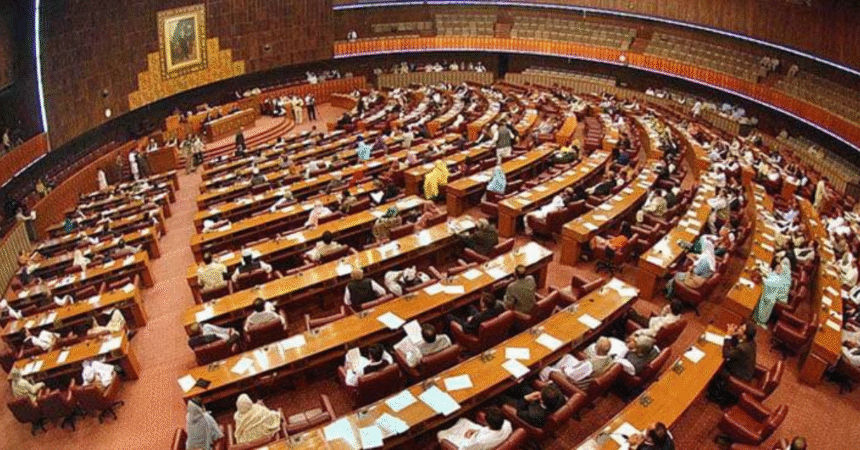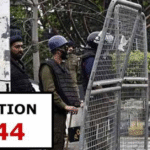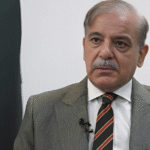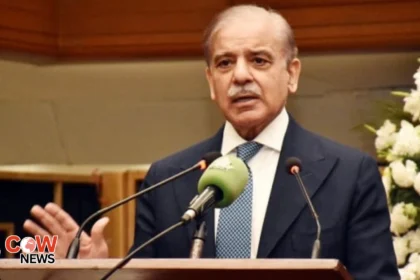ISLAMABAD: The political landscape in Pakistan is witnessing a critical juncture as the government confronts significant challenges in securing the necessary parliamentary support for constitutional amendments. Current reports indicate that the ruling coalition is short of five senators in the Senate and seven members in the National Assembly (NA) required to achieve a two-thirds majority, a prerequisite for any constitutional changes. This situation has led to growing concerns within the government regarding its ability to navigate the complexities of the legislative process.
Context of the Constitutional Amendments
The push for constitutional amendments primarily revolves around reforms concerning the superior judiciary, a subject that has been at the forefront of Pakistan’s political discourse. The judiciary’s role in politics has historically been contentious, with numerous debates surrounding its independence and influence over legislative matters. The government’s intention to amend the constitution is seen as an effort to address these issues and redefine the balance of power between the legislative and judicial branches.
As the government grapples with these amendments, internal party dynamics and external political pressures play a significant role. The coalition government, comprising the Pakistan Muslim League-Nawaz (PML-N) and the Pakistan Peoples Party (PPP), along with other smaller parties, is finding it increasingly difficult to unify its members under a common agenda.
Internal Government Dynamics
Sources within the government indicate that the coalition is more deficient in numbers than before, creating a challenging environment for achieving legislative goals. “We are more deficient in numbers than before, but the effort is on to achieve the magic number (two-thirds majority in both houses),” a government source revealed. This admission reflects a palpable sense of urgency and apprehension as the coalition leaders prepare for upcoming sessions in Parliament.
In discussions with influential government members, it became evident that confidence levels regarding the achievement of constitutional amendments have waned. The ruling coalition appears to be reliant on external influences rather than purely on its own numbers. This situation is compounded by the fact that several members of the National Assembly who had previously assured their support have since distanced themselves from the coalition’s agenda.
The Challenge of Maulana Fazlur Rehman
One of the most formidable challenges facing the ruling coalition is the position of Maulana Fazlur Rehman, leader of the Jamiat Ulema-e-Islam (F) (JUI-F). His party’s influence within the political arena is significant, and his reluctance to support the government’s initiatives poses a serious hurdle.
Neither the PML-N nor the PPP has succeeded in convincing Maulana Fazlur Rehman to side with the government. “Maulana has become a difficult challenge for the ruling coalition parties,” a senior government member acknowledged. The stakes are high, as the coalition is keenly aware that allowing Maulana to drift towards the opposition, particularly the Pakistan Tehreek-e-Insaf (PTI), could further weaken their standing.
The government recognizes that if it is to achieve its goals, securing Maulana’s support is critical. Despite efforts by various government officials, including Interior Minister Mohsin Naqvi, to reach out to Maulana, the latter remains steadfast in his position, complicating the coalition’s efforts.
The Implications of Diminished Support
The government’s inability to consolidate its numbers poses significant implications for its legislative agenda. A ruling party senator expressed concern over the diminishing chances of passing the constitutional amendments. “The chances of getting through the constitutional amendments are becoming dim,” he noted, highlighting the challenges that lie ahead.
Furthermore, the internal discord within the ruling coalition is evident, with different factions expressing varying levels of commitment to the government’s objectives. This fragmentation raises questions about the government’s ability to present a united front in Parliament, further complicating the prospects of achieving a two-thirds majority.
Strategic Negotiations and External Forces
In the face of dwindling numbers, the government has turned its attention to potential alliances with other political figures. One notable figure is Akhtar Mengal of the Balochistan National Party, with whom the government is reportedly working to build a rapport. However, the primary focus remains on securing Maulana Fazlur Rehman’s support, as his backing could significantly bolster the coalition’s standing in the National Assembly.
The dynamics surrounding the constitutional amendments reflect a broader trend of political maneuvering, where alliances are formed based on the immediate needs of the coalition. As one senior member remarked, “When the state takes a decision, it makes things happen.” This statement underscores the reliance on external forces to shape the political landscape, particularly in times of uncertainty.
The Role of Bilawal Bhutto and Competing Interests
Another influential figure in the current political climate is Bilawal Bhutto, the chairperson of the PPP. His advocacy for establishing a Federal Constitution Court has garnered attention, yet his efforts to win over Maulana Fazlur Rehman have not yet borne fruit. The intersection of these political agendas adds a layer of complexity to the ongoing discussions regarding constitutional amendments.
Bilawal’s push for a Federal Constitution Court is indicative of the differing visions within the ruling coalition. While the PPP is focusing on judicial reform, the PML-N’s emphasis appears to be on navigating the existing political landscape and securing the necessary votes for amendments. This divergence in priorities reflects broader ideological differences that can hinder the coalition’s effectiveness in advancing a unified agenda.
The Impact of Recent Supreme Court Decisions
Recent Supreme Court rulings have further complicated the situation. The decision regarding Article 63A, which pertains to disqualification of lawmakers, has been particularly contentious. The implications of this ruling have significant consequences for the political landscape, influencing both the government’s strategy and the opposition’s response.
Despite the challenges posed by the judiciary, the government remains steadfast in its resolve to pursue constitutional amendments. However, the effectiveness of these efforts will largely depend on its ability to navigate the intricate web of alliances and rivalries within the political arena.
The Road Ahead: Uncertainty and Opportunity
As the government prepares for crucial parliamentary sessions in the coming week, the stakes are higher than ever. The coalition’s ability to secure the necessary support for constitutional amendments will significantly influence its future trajectory and governance.
The Importance of Coalition-Building
The urgency of coalition-building cannot be overstated. As the ruling coalition grapples with internal divisions and external pressures, forging strong alliances with other political entities will be vital. This includes not only securing the support of influential figures like Maulana Fazlur Rehman but also cultivating relationships with smaller parties and independent lawmakers.
The challenges of coalition politics are compounded by the fast-paced nature of political developments in Pakistan. The shifting allegiances and changing priorities of lawmakers necessitate a nimble approach from the government, as it seeks to adapt to the evolving political landscape.
A Test of Leadership
The current situation serves as a test of leadership for the government, particularly for key figures within the PML-N and PPP. The ability to navigate these challenges will determine the coalition’s success in achieving its legislative goals. Effective communication, strategic negotiations, and a willingness to compromise will be essential in securing the necessary support.
Furthermore, the government must also be mindful of public sentiment. The perception of political maneuvering and backroom deals can impact the coalition’s legitimacy and support among the electorate. Transparency and accountability will be crucial in maintaining public trust, especially in an environment characterized by political uncertainty.
The government’s struggle to secure support for constitutional amendments highlights the complexities of Pakistan’s political landscape. As it navigates internal challenges and external pressures, the ruling coalition faces an uphill battle in achieving its legislative objectives. The outcome of these efforts will have profound implications for the government’s stability and future governance.
In the weeks ahead, the focus will be on whether the government can overcome its numerical deficiencies, build effective coalitions, and navigate the intricacies of political alliances. With significant stakes at play, the political dynamics surrounding the constitutional amendments will remain a central theme in Pakistan’s ongoing governance challenges.
#PakistanPolitics #ConstitutionalAmendments #PMLN #PPP #MaulanaFazlurRehman #PoliticalChallenges #LegislativeProcess #CoalitionGovernment







